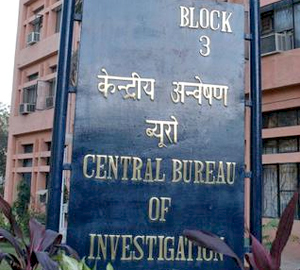 New Delhi, Nov 4: The CBI on Monday approached the Rajya Sabha secretariat seeking documents related to fake travel bills allegedly submitted by a JD(U) MP against whom a case has been registered for making such claims.
New Delhi, Nov 4: The CBI on Monday approached the Rajya Sabha secretariat seeking documents related to fake travel bills allegedly submitted by a JD(U) MP against whom a case has been registered for making such claims.
CBI sources said a team has again gone to the secretariat to collect these documents.
The agency has registered its first FIR in the Leave Travel Concession(LTC) scam against JD(U) Rajya Sabha MP Anil Kumar Sahani for allegedly siphoning off around Rs. 9.5 lakh by presenting fake air tickets and boarding passes.
Besides Sahani, Air India customer Service agent Rubaina Akhtar and Lajpat Nagar-based travel operator Air Cruise Travels Private Ltd have also been named in the FIR in the scam in which LTC claims were forged for travel on state-run Air India.
In his defence, Mr. Sahani had refuted the allegation claiming that it was he who had complained to the authorities about 20 fake tickets being submitted in his name.
He has alleged that it was his personal assistant who had submitted these tickets for claims but no money was ever transferred to his account.
The MP has claimed that he had brought this matter to the notice of concerned authorities and even submitted that complaint letter to CBI when it searched his premises here.
The tour operator and Air India did not offer any comments.
CBI has alleged that Mr. Sahani made false claims of approximately Rs. 9.5 lakh for seven business class return air tickets costing nearly Rs. 1.34 lakh each to Port Blair in December 2012 using fake air tickets and boarding passes for himself and six associates, the sources said.
CBI sources said the agency has registered a case of cheating and forgery among other charges under Indian Penal Code (IPC) and relevant provisions of the Prevention of Corruption Act.
CBI has alleged that the MP purchased seven return e-tickets in connivance with the tour operator and the Air India employee. He also allegedly used online service to get boarding passes using web check-in basis.
The sources said just before the boarding time, these boarding passes and tickets were allegedly cancelled using the sign-in code of Akhtar, the Air India customer service agent, and money was refunded with little deduction.
Meanwhile, the e-tickets and boarding passes which were earlier issued were allegedly presented to claim the travel expenses by the MP.
The sources said even though no expenses were incurred by the MP, he allegedly claimed the amount using these e-tickets and boarding passes which were cancelled.





Comments
Add new comment